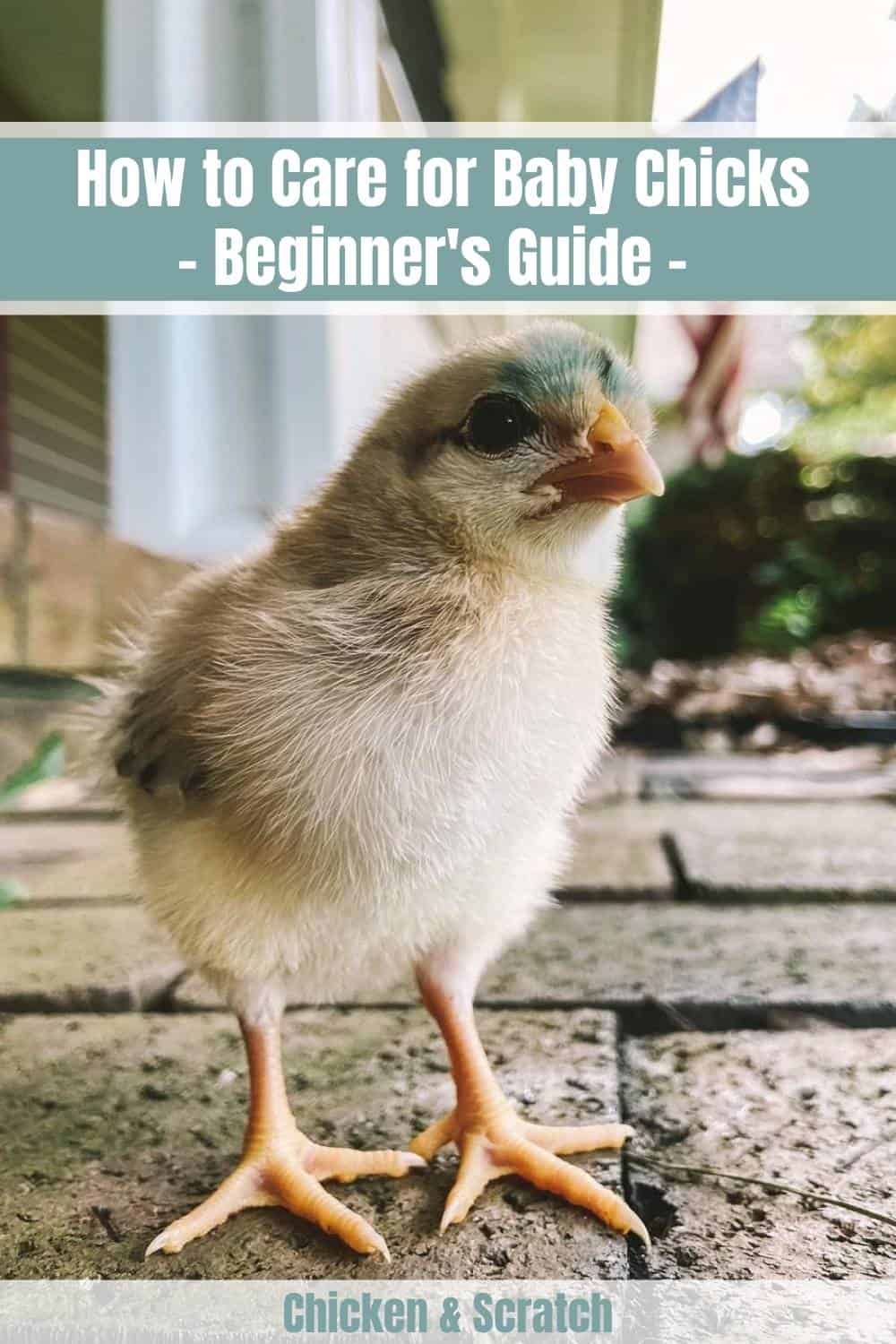Raising backyard chickens is very exciting. The most exciting part is when you bring home your baby chicks, ready to be taken care of. There are essential elements needed to raise these baby chicks. These include heat, water, food, and a coop. The long-term health of the chick depends on the care you provide on their first days.
What Do I Need for Chicks? A Preparation Before Baby Chicks Arrives
It is essential to prepare all the vital needs of baby chicks before it arrives and this includes the following:
Brooder
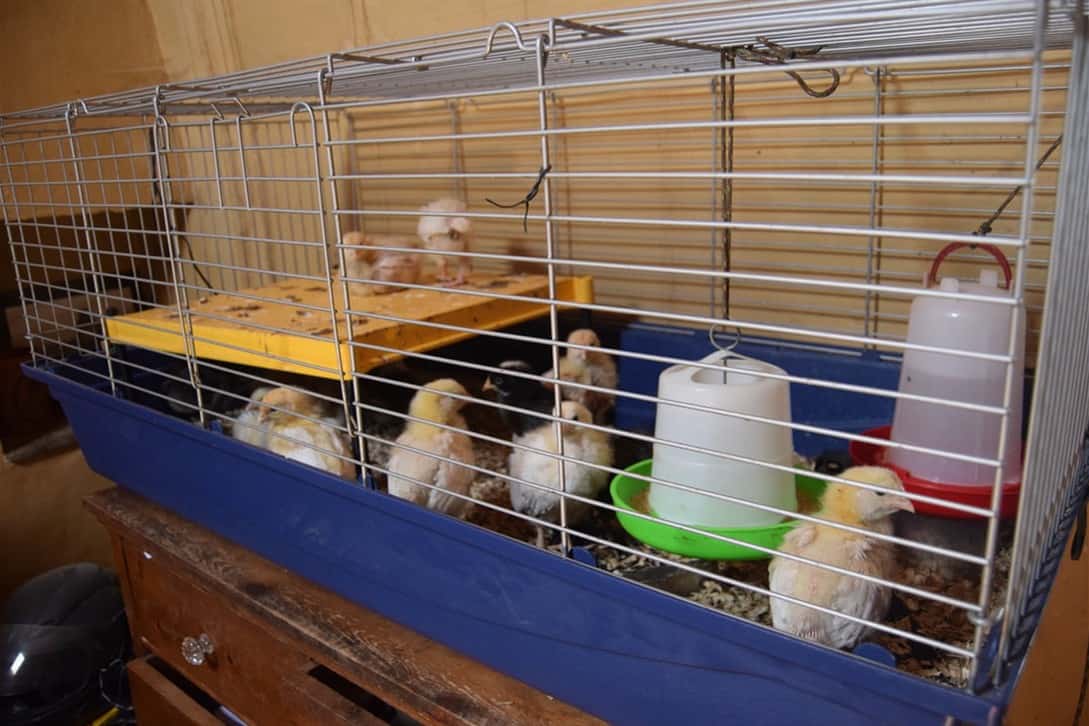
Chick brooders provide a warm shelter and a safe place for baby chicks. The brooder is very important to them for the first six weeks of their lives.
You can use a homemade brooder. These are wood-floored and wood-framed and can be easily moved in case changing of places is needed. There are also commercial types of brooders. They may vary in size, but most of them are large. It consists of several brooder units and floors with easy access to water and has a feeder.
Heat
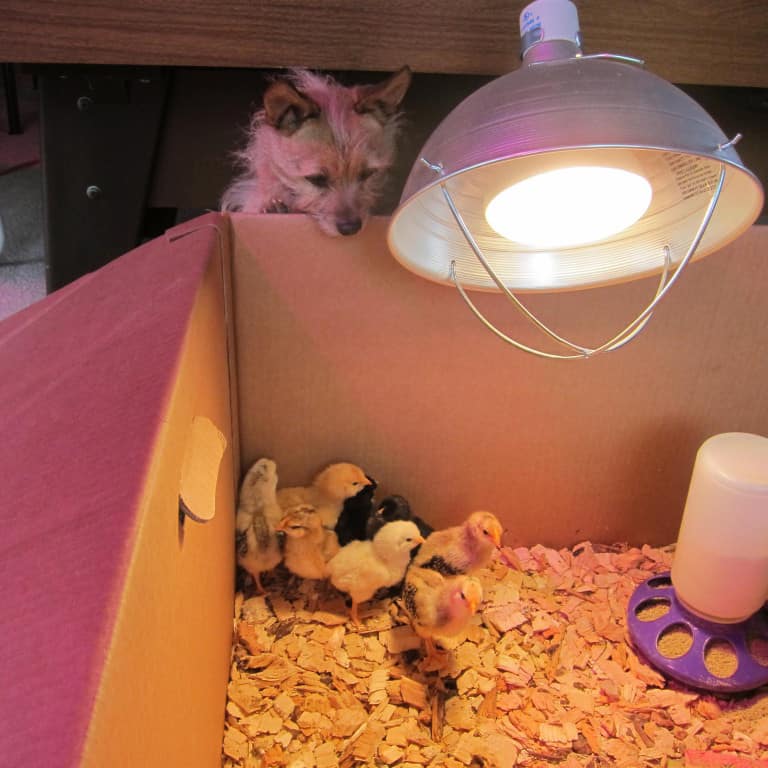
Securing a chick’s warmth is a significant factor in the first days of its life. Overheating or chilling will affect the chick’s growth and may result in poor health status. Chicks are easily stressed out once the temperature rises or decreases.
These temperature changes will affect the overall performance of chicks or may cause mortality. You need to provide an excellent lamp to heat the environment, especially at night.
Bedding
Baby chicks need safe and comfortable beddings. Most poultry owners usually use whole sheets of newspaper. However, it is discouraged since it is slippery and nonabsorbent, which may cause leg deformities in chickens. The most recommended are pine shavings, hay, straw, clean sand, and paper towels.
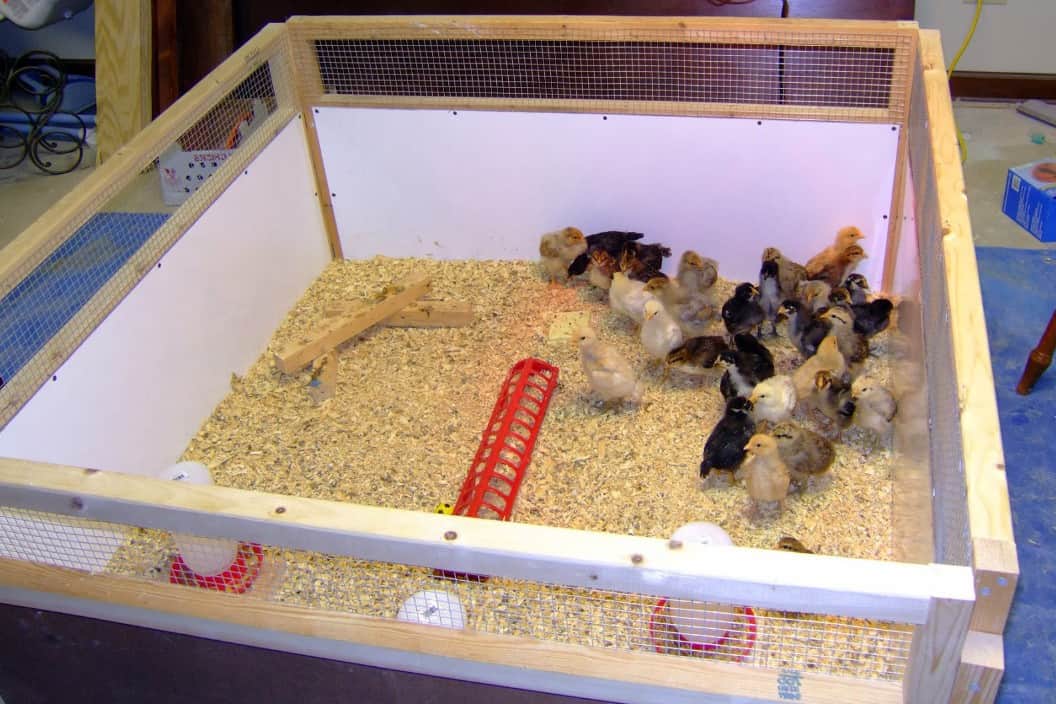
Feeders
Chicks tend to kick their feeders, which can be a waste of money and effort. Chicks are very messy and tend to climb on the feeder, messing out the food with waste. That is why it is essential to prepare a suitable feeder. You may use a long plastic feeder, long metal feeder, a clean egg tray, or a hanging feeder.
Waterers
Water is an essential factor in keeping your chick healthy and hydrated. Since chicks tend to roam around kicking down everything they bump into, it is best to choose the best waterers. It is best to keep a steady waterer. You can use a plastic waterer since it’s affordable and lightweight. You can also use a metal waterer; though it is expensive, it is durable.
What are the Essential Nutrients for Baby Chicks?
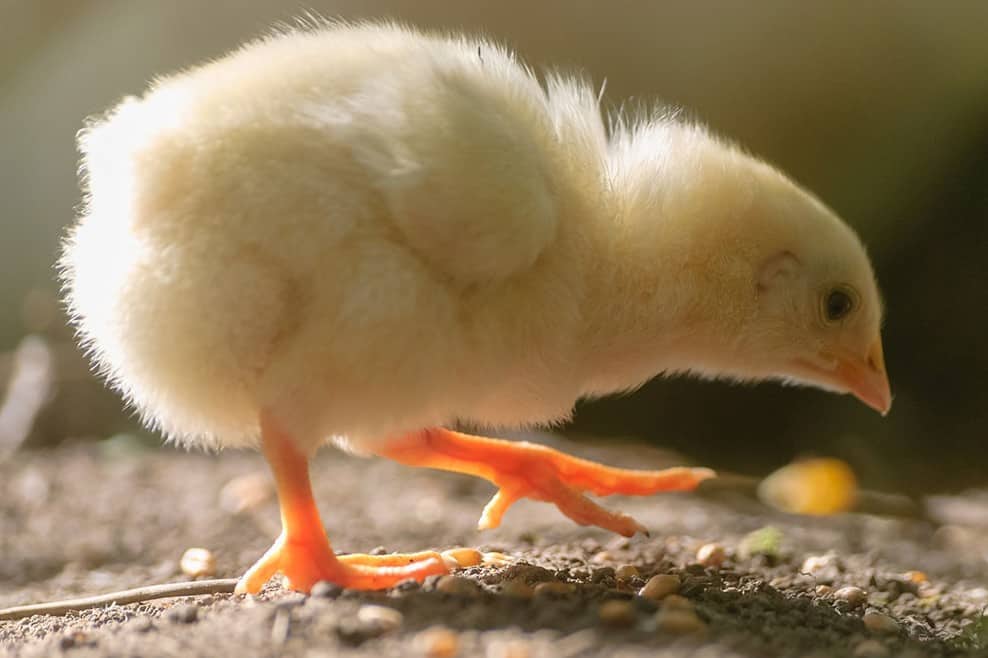
Ensuring chicks are provided with appropriate vitamins and minerals is essential in their early lives to keep them healthy. In feeding them, make sure that their feeds include the following:
Vitamins
Chicks need all the vitamins, excluding vitamin C. The chicks’ fat-soluble vitamins include vitamins A, D, E, and K. While water-soluble vitamins include B1, B2, pantothenic acid, niacin, choline, vitamin B12, and folic acid, and biotin. These are the essential vitamin components for the chicken’s diet.
Minerals
Minerals are essential to the overall health and well-being of baby chicks. The essential minerals are calcium, phosphorus, magnesium, manganese, iron, copper, iodine, zinc, and cobalt.
Protein
Protein is essential for muscle production. Protein promotes strength and muscle integrity which is very crucial in the baby chick’s development. After hatching, make sure to include 18 to 20 percent of protein into the chick’s diet. Gradually reduce it to 16 percent once the chicks reach 19 weeks.
Fats
Fatty acids play a vital role in breaking down the vitamins and minerals that provide essential benefits to baby chicks.
Grains
Baby chicks need energy; they can get these from healthy grains, including corn, wheat, and soybean meal.
What Can Baby Chicks Eat?
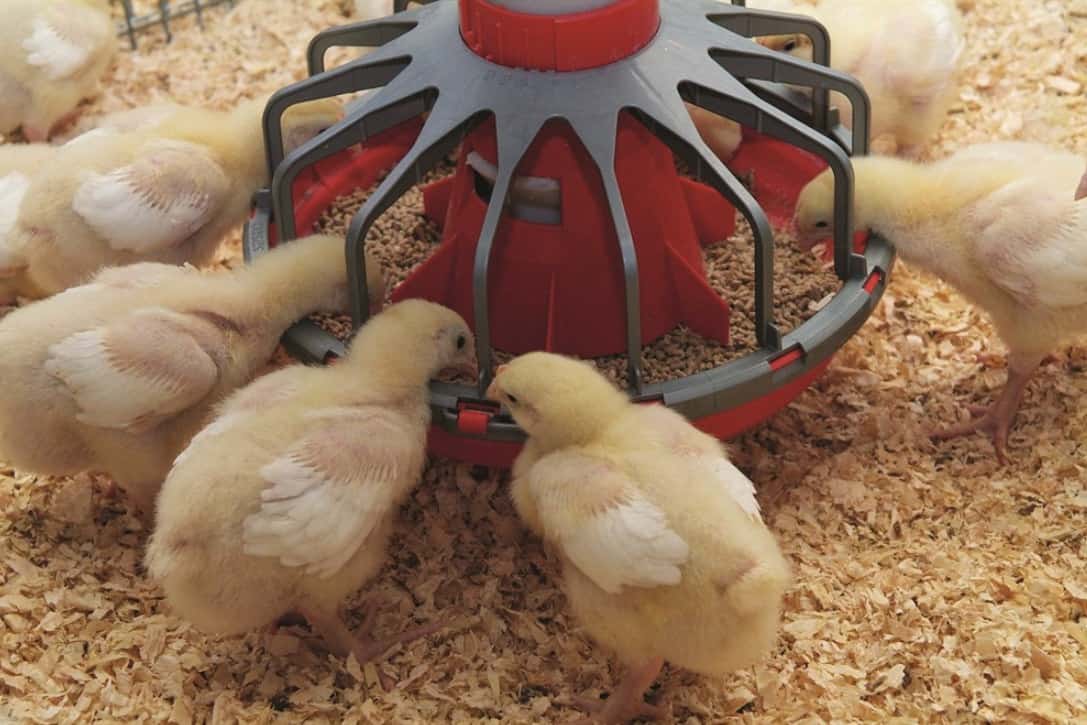
It is unnecessary to feed the baby chicks for 48 hours after they are hatched because the yoke of the egg sustains them. They absorb the nutrients inside the egg before they come out of the shell. However, after 48 hours, they need to eat and drink. Baby chicks can eat the following:
Worm
Part of the biological makeup of chicken is to enjoy worms since it naturally exists in their environment. Worms are a great source of protein for chicks.
Oatmeal
Oatmeal is an excellent source of vitamins, minerals, and some proteins. Chicks may eat it cooked or raw.
Bananas
You can feed your chicks with spotty brown bananas. This fruit is a good source of magnesium, copper, and carbs that your chicks need. However, it is discouraged to feed unripe bananas to baby chicks.
Crickets
Baby chicks can eat dried crickets. It provides them with a good source of protein and calcium. It is ideal for keeping baby chicks strong. However, consider that baby chicks are still tiny and might have a hard time eating them, or it takes them slowly.
Lettuce
You may feed your chicks with lettuce like romaine lettuce high in phosphorus, potassium, vitamin K, and folate. Avoid feeding them with iceberg lettuce since it may cause diarrhea.
Watermelons
Watermelons are good for chicks as they provide an additional source of hydration. Avoid feeding baby chicks with watermelon seeds.
Tomatoes
Tomatoes are a great source of vitamin K, folic acid, fiber, potassium, and antioxidants. However, the same as eggplant, its leaves, flowers, and stem are poisonous because it contains solanine. Make sure to serve tomatoes only and throw away its green parts.
Frequently Asked Questions
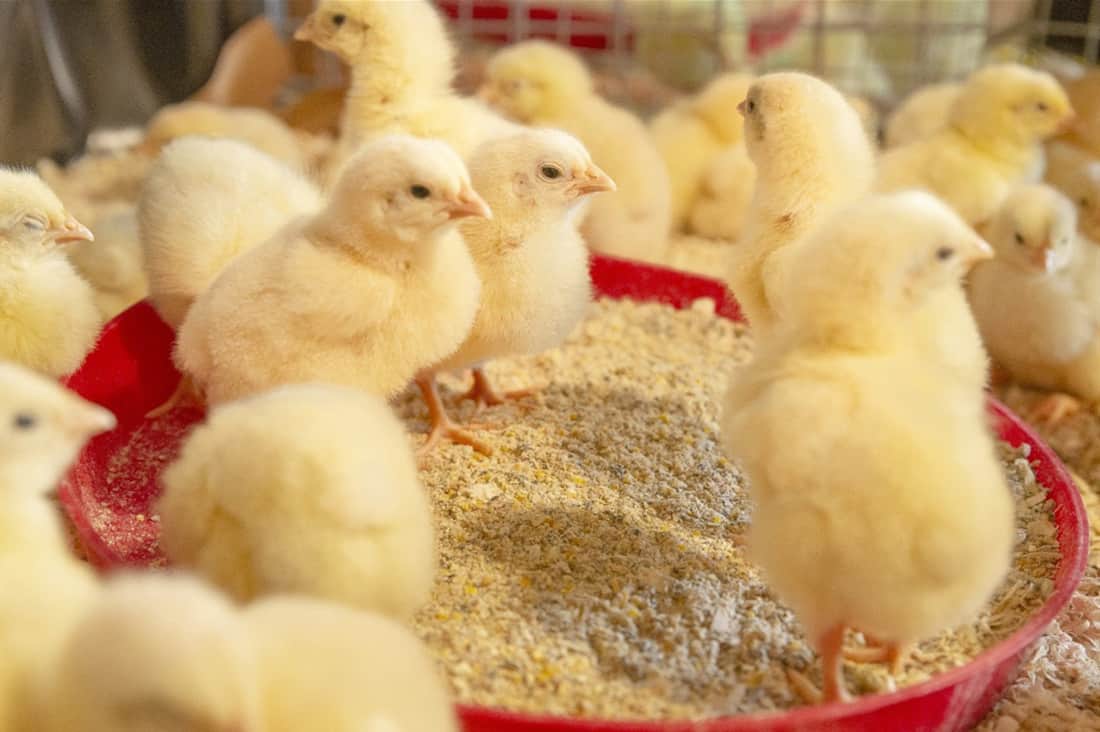
How many Feeds Should be Given to Baby Chicks?
Baby chicks should eat 1 pound of feed per week. When chicks reach six weeks, they should be fed with 20 to 22 percent protein for rapid growth. The nutrition needs of the chicks change as it grows. The amount of feed will also vary depending on their developmental stages.
How Much Water Do Baby Chicks Need?
After hatching, chicks do not need water for 24 to 48 hours since they are sustained by the nutrients they absorb inside the shell. After 24-48 hours, the chick will be thirsty and needs to be given water. Before letting the chick drink, you should dip its beak first in the water. When providing water, one gallon is suited for each group of 25 to 50 chicks.
Is Vaccination Necessary for Baby Chicks?
Yes, it is necessary to vaccinate baby chicks; it provides them benefits that prevent them from acquiring diseases. Many diseases can cause death to your flock. Your baby chicks may also develop infections that may cause you a lot of money.
As an owner, you can choose what vaccine you want your chicks to have. They are generally vaccinated for bronchitis and Marek’s disease in the hatchery before being delivered to your house or farm.
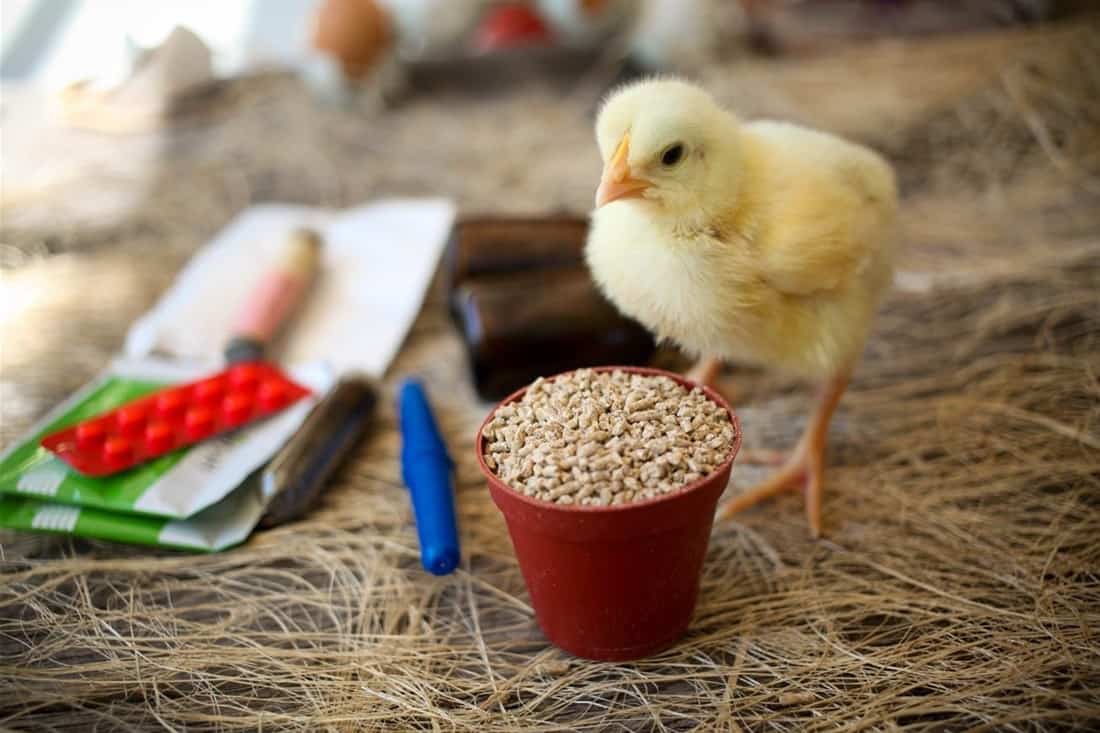
What is the Ideal Temperature for Chicks?
The ideal temperature for chicks is 95 degrees Fahrenheit. After one week, you can reduce the heat by 5 degrees. Keep on reducing the temperature by 5 degrees Fahrenheit each week until you have reached 55 degrees Fahrenheit.
Aside from using a thermometer in monitoring the room temperature, you can also observe their behavior. If baby chicks are huddling together under the lamp, it means they are cold. If they are going away from the light, it means they are too hot.
Do Baby Chicks Need Light at Night?
Baby chicks do not need light at night, but they need it to keep them warm. Baby chicks who hatch with their mother hen do not need light to warm them. The heat coming from their mother keeps them warm. However, new baby chicks that are hatched without their mother need light to keep them warm.
If you do not provide light to chicks at night, it will cause them to panic blindly. It will lead them to be rattled and scrambled and cause them to pile at the corner, smothering each other.
Why is my Baby Chick Chirping Loudly?
Loud chirping may alarm discomfort. Chicks are chirping because they are either chilling or feeling hot, and it is best to check the temperature. Also, they may be hungry or thirsty. Other than that, they are chirping loudly because of an illness or disease.
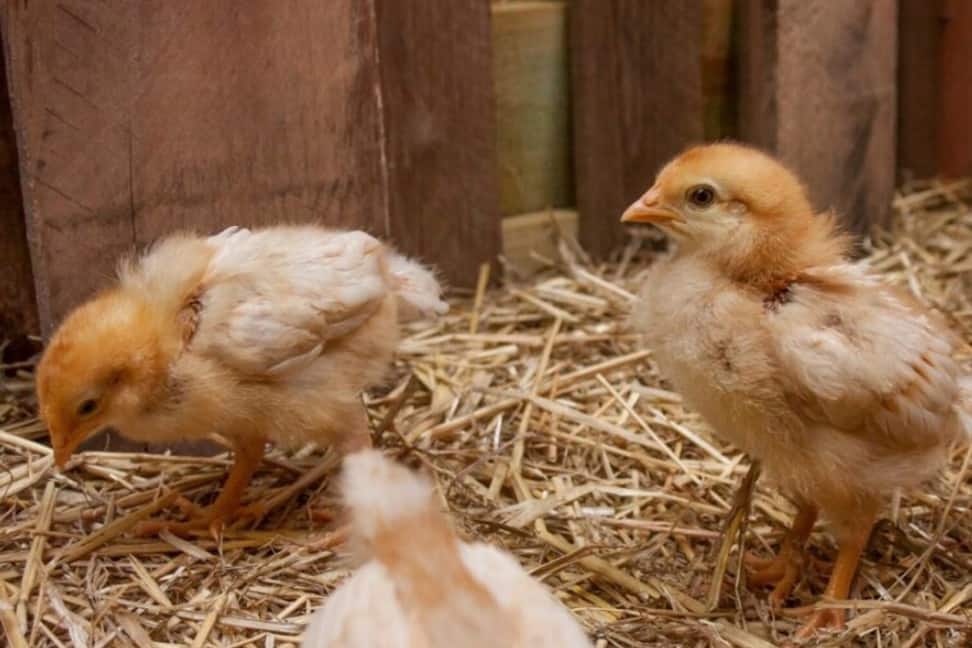
What to do with a Sick Baby Chick?
A sick baby chick needs to be isolated to avoid contact with others. You need to feed sick baby chicks with plain yogurt mixed with a small amount of chicken feed. It is also important to regularly provide food for sick baby chicks. If they are not vaccinated for coccidiosis, use a medicated feed to feed them.
When can Baby Chicks go Outside?
Baby chicks can go outside once they reach six weeks. However, make sure that they are fully feathered and can endure around 70 degrees Fahrenheit.
Summary
Baby chicks need to be provided with good shelter, water, and food at an early stage. They need to be kept warm until their feathers are good enough to tolerate the average room temperature.
Their food must also be nutrient-dense to keep them healthy. Also, it is essential to keep the chick’s environment clean to ensure good sanitation. The overall health and growth of the chicks depend on how you care for them in the first six weeks of their lives.
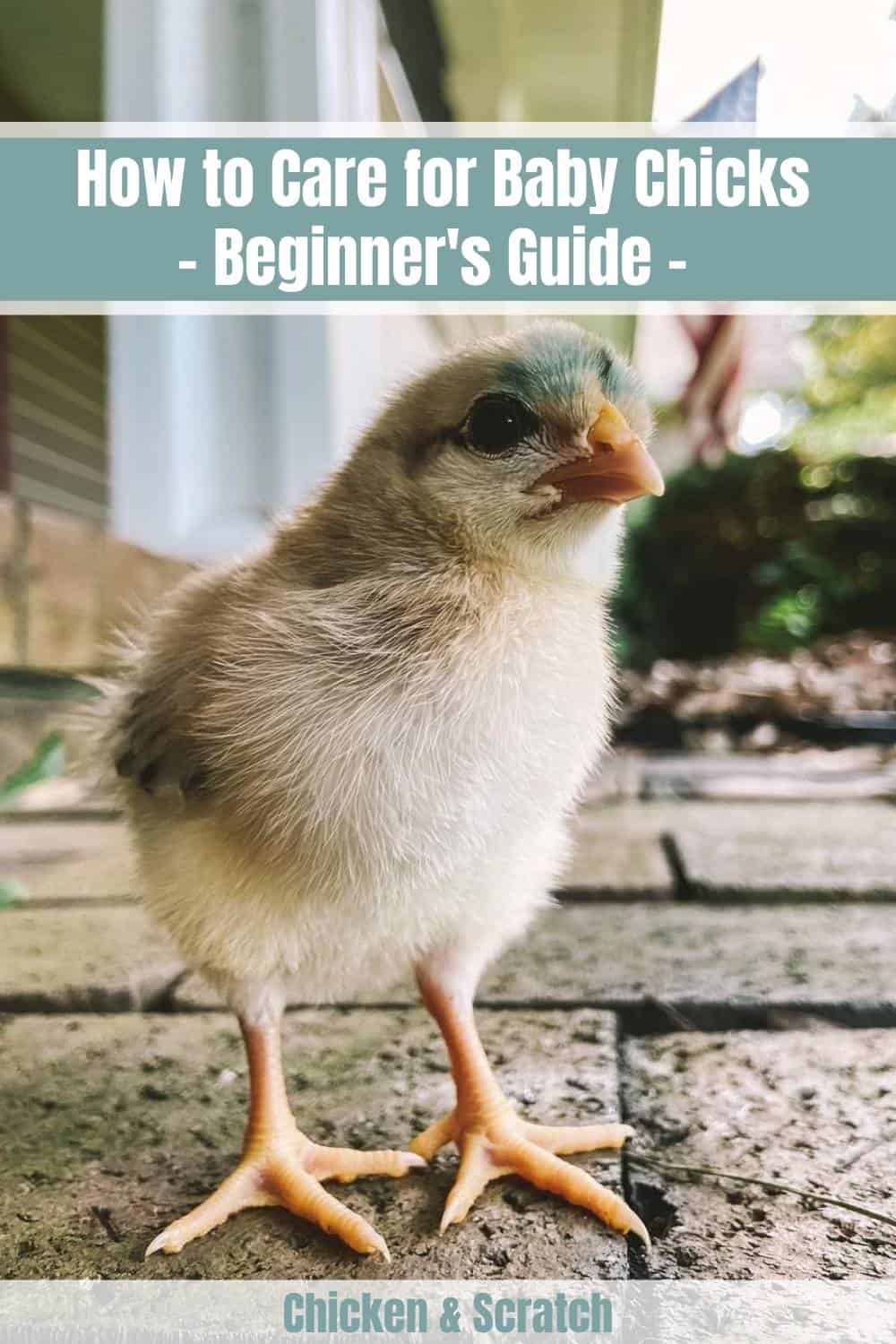

Joseph Hudson has been raising chickens for over 15 years. In 2018, he completed the Agriculture & Natural Resources program at Mt. San Antonio College. He currently raises over 1400 chickens on his 7.5-hectare farm. He keeps sharing his experience on raising healthy and happy chickens on Chicken Scratch The Foundry.
